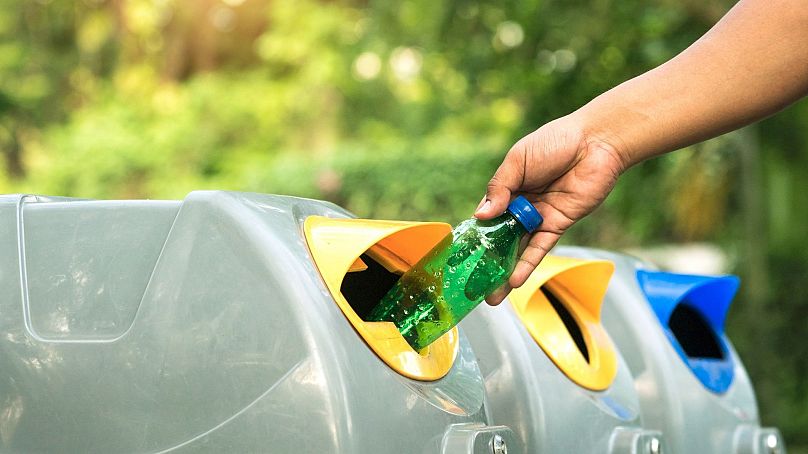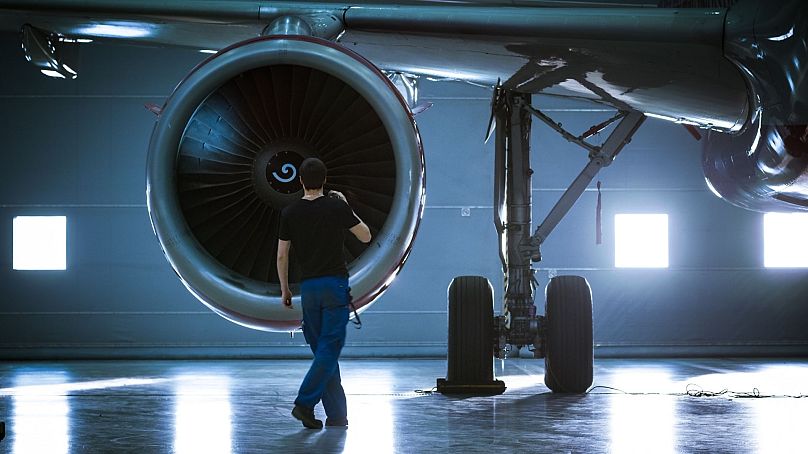From recycling to ride sharing, these cutting edge companies are working hard to innovate the environmental sector.
It’s an exciting time to be a green tech start-up. The eyes and ears of companies across the world have never been more fixed on finding solutions to seemingly unsolvable problems, and have more financial backing to do so than ever.
The small-scale teams on this list are inventing ways to boost recycling, battery longevity, better transportation and more.
Forward-thinking ideas like these are worth celebrating, as the news around the climate crisis is so grave.
Here are some of the best projects encouraging real environmental changes this year.
TeknTrash
TeknTrash is a start-up created with the objective of gaining a bigger picture of what we’re recycling and where it goes. Their first project re-incentivises recycling by offering rewards via the platform Stipra - we’ve tested it and found it to be really easy.
Users can take video evidence of recycling certain products and redeem points in the form of trips, gifts and promotions. The key is to ensure you’re putting the right things in the right places, depending on the recycling services your area offers. TeknTrash’s next step is to look into how they can make these points exchangeable for real money.
You heard that correctly - you could be getting paid to recycle in the future.
Improper recycling harms the planet more than you might realise, it generates methane gas, which is 80 times more potent than CO2.
The eligible products for disposal are things you likely already own. Disposing of a bottle of Listerine mouthwash in the correct plastics bin can get you 200 points, while a used box of cold medication Lemsip Max can earn you a further 300.
TeknTrash collects this information to assist companies in advancing consumer waste practices and producing better product lifespans. It’s a fascinating framework of rewarding people for something they might be doing daily for free.
The start-up is in the process of a fresh round of crowdfunding, which can be found here.
Facedrive
This Canada-based operation wants to become the more sustainable competitor to the likes of Uber and Deliveroo. It offers a rideshare service with green and hybrid options along with a tree planting initiative to offset the carbon produced that you can physically track in-app.
Facedrive’s latest product launch comes in the form of ‘Steer’, an app that is by far their most ambitious. Getting on board with the growing demand faced by electric vehicles means they now offer a subscription service where users can borrow electric vehicles as and when required. The models on offer range from Nissans to Teslas at a more premium price.
The idea will work incredibly well for those who want to test the waters in EV transportation.
It doesn’t end there - the company is also trying to set an example in improving workers rights across the gig economy. Its smaller scale means drivers working for Facedrive are offered a bigger slice of the pie than their competitors and never want job security to come into question either.
Facedrive is accessible in numerous Canadian and American territories and plans to launch a European arm very soon, so keep an eye out.
Wonderfil
Wonderfil’s focus is firmly on providing better solutions to plastic pollution. The green tech startup has designed a “dispenser service that integrates into any location wanting to offer liquid and cream products without plastic bottles”. It is refreshing to see the majority-female team finding ways to address how wasteful the beauty and personal care industry can be.
The aim is that leading brands will be drawn into providing their products at bulk dispensaries where people can pay and top them up as and when required, instead of buying a totally new product and wasting further plastic.
They are also creating online resources that serve to educate people on the impacts of plastic pollution.
The technology will be trialled at the University of California this summer and could lead to a wider rollout if successful.
Oxis Energy
The incorrect disposal of batteries has profound effects on water and air pollution due to the leakage of their acids in landfills. Oxis Energy is developing lithium-sulfur batteries rather than the standard lithium-ion types because they can hold up to 5 times more energy.
They claim this will revolutionise rechargeable energy by cutting material costs and sustaining products for longer.
Oxis Energy believes its technology can be “instrumental” in enabling electric aircrafts and improving the status of electric cars. Its batteries have also been tested for resistance to water pressure in marine crafts which could make for a hugely beneficial progression, cross-industry.
From the looks of their patent portfolio they are working hard and fast to make this a reality - the company has 214 patents granted and 106 pending.
Monodraught
Less of a start-up in the traditional sense, Monodraught has gone through a period of rapid expansion after receiving the Queen’s Award for Innovation a few years ago. The company manufactures natural lighting, air conditioning and ventilation technology that is now widely used by the likes of IKEA, Ford and Waitrose.
One of the coolest examples of their tech is their utilisation of natural lighting in huge spaces.
Their installations use aluminium sunpipes to collect daylight and reflect it back into large spaces. It is proved to improve mood and productivity as well as decreasing energy usage and company costs.
Mounting pressure on corporations to share some of that collective responsibility when sustainability is concerned means there has never been a better time to offer accessible, cost-effective outcomes.
According to Monodraught, identifying this gap in the way commerce can house eco-friendly solutions like this has saved over 400,000 tonnes of CO2. Their inventions are built to last too - installations have a design life of 10-20 years.
Every weekday at 15.30 CET, Euronews Living brings you a cutting edge, environmental story from somewhere around the world. Download the Euronews app to get an alert for this and other breaking news. It's available on Apple and Android devices.













